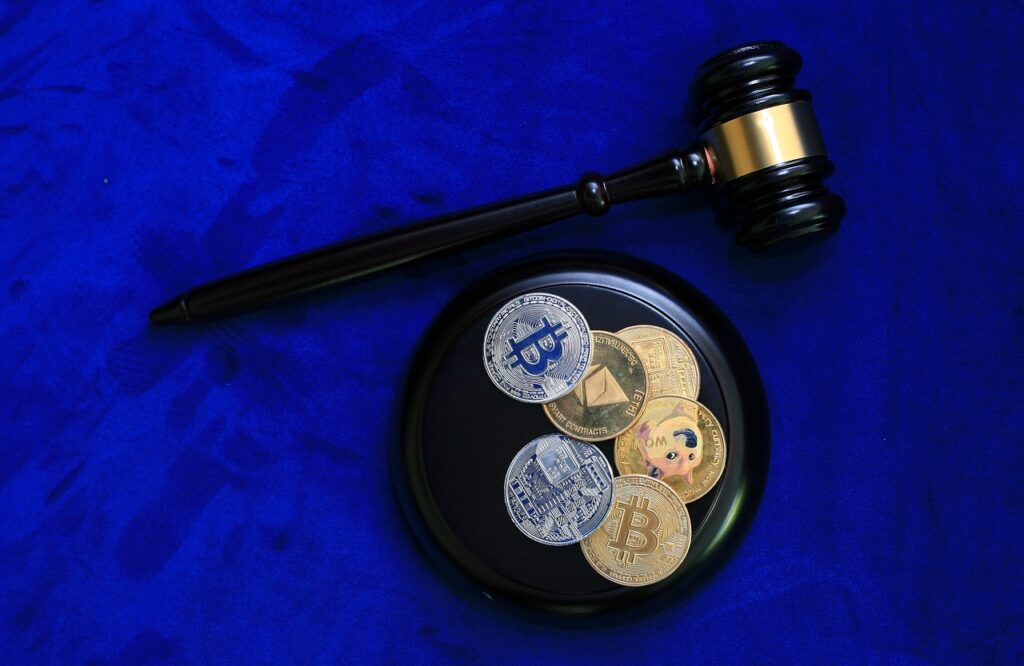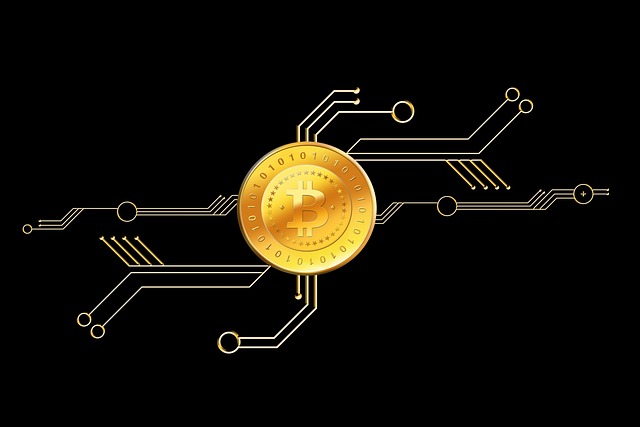Investing in a Decentralized Finance Company: Expectations and Realities
Investing in a Decentralized Finance Company: Expectations and Realities

What is Decentralized Finance and how does it work?
Decentralized Finance, often referred to as DeFi, is a revolutionary concept that aims to reshape traditional financial systems by leveraging blockchain technology. At its core, DeFi aims to provide financial services in a decentralized and open manner, eliminating the need for intermediaries such as banks or other financial institutions. By utilizing smart contracts, which are self-executing contracts with the terms of the agreement directly written into lines of code, DeFi applications are able to automate complex financial transactions without the need for centralized oversight.
One of the key features of DeFi is its ability to enable anyone with an internet connection to access a wide range of financial services. These services include but are not limited to lending, borrowing, trading, and even earning interest on their cryptocurrency holdings. Through decentralized exchanges, individuals can trade digital assets peer-to-peer, without the need for a central authority. This not only reduces the cost and time associated with traditional financial transactions but also provides individuals with greater control over their finances. Moreover, DeFi platforms allow users to earn interest on their cryptocurrency holdings by participating in lending or liquidity providing protocols, creating new opportunities for passive income generation.
The potential benefits of investing in a Decentralized Finance Company.
Decentralized Finance (DeFi) companies offer a wide range of potential benefits for investors. One major advantage is the opportunity for enhanced financial inclusivity. Traditional financial systems often exclude individuals and communities who lack access to banking services or credit. In contrast, DeFi companies utilize blockchain technology to create decentralized platforms that are powered by smart contracts, enabling anyone with an internet connection to participate in financial activities. This inclusivity opens up new avenues for investing and wealth creation, empowering individuals who were previously marginalized by the traditional financial system.
Another potential benefit of investing in DeFi companies is the increased transparency and security provided by blockchain technology. In traditional financial systems, information is often centralized and controlled by a small number of entities. This can lead to opacity, lack of trust, and even opportunities for fraud. With DeFi, transactions are recorded on a transparent and immutable blockchain, accessible to all participants. This level of transparency reduces the potential for fraud and enhances investor confidence. Moreover, because smart contracts execute transactions automatically, there is minimal human intervention, reducing the risk of errors and manipulation. These features create a more secure and efficient investing environment, giving investors peace of mind and ensuring a fair playing field.
• Enhanced financial inclusivity:
– DeFi companies allow individuals and communities without access to banking services or credit to participate in financial activities.
– Blockchain technology and smart contracts enable anyone with an internet connection to invest and create wealth.
• Increased transparency and security:
– Traditional financial systems often lack transparency, leading to opacity, lack of trust, and fraud opportunities.
– DeFi utilizes blockchain technology, recording transactions on a transparent and immutable ledger accessible by all participants.
– This level of transparency reduces the potential for fraud and enhances investor confidence.
• Minimal human intervention:
– Smart contracts automatically execute transactions without the need for human intervention.
– This reduces the risk of errors and manipulation in investing activities.
• Secure and efficient environment:
– The combination of increased transparency, minimal human intervention, and blockchain technology creates a more secure investing environment.
– Investors can have peace of mind knowing that their investments are protected against fraud or manipulation.
Understanding the risks associated with investing in a Decentralized Finance Company.
Investing in a Decentralized Finance (DeFi) company can offer many exciting opportunities, but it is essential to understand the risks involved. One of the primary risks associated with investing in DeFi is the volatility of the cryptocurrency market. Cryptocurrencies, which are often used in DeFi projects, can experience significant price fluctuations. This volatility can lead to both substantial gains and losses, so it is important to carefully consider your risk tolerance before investing.
Another risk to consider is the security of DeFi platforms. While the decentralized nature of these platforms can offer benefits such as transparency and immutability, it also means that they may be susceptible to hacking and other security breaches. Investors need to be cautious and do their due diligence when choosing which DeFi projects to invest in, ensuring that the platforms have robust security measures in place to protect their investments.
In summary, investing in DeFi companies can be a rewarding venture, but it is crucial to understand the risks involved. Volatility in the cryptocurrency market and the potential for security breaches are two significant risks that investors should be aware of. By carefully evaluating these risks and conducting thorough research, investors can make informed decisions and maximize their chances of success in the DeFi space.
How to evaluate the credibility and reliability of a Decentralized Finance Company.
When considering investing in a Decentralized Finance (DeFi) company, it is essential to evaluate its credibility and reliability. One key factor to look out for is the transparency of the company’s operations and its team. A reputable DeFi company will have clear information about its founders, developers, and core team members readily available. It is crucial to research their backgrounds, experience, and expertise in the field. The more transparent the company is about its team, the more trust it can inspire.
Another important aspect to consider is the company’s track record and reputation within the DeFi community. Look for evidence of successful projects, partnerships, or collaborations that the company has been involved in. Assess whether the company has fulfilled its promises and delivered on its objectives in the past. Reviews and feedback from other investors can also be helpful in gauging the credibility and reliability of a DeFi company. By conducting thorough research and due diligence, you can make more informed decisions and choose a trustworthy DeFi company to invest in.
Exploring the different investment opportunities within the Decentralized Finance space.
Decentralized Finance (DeFi) has revolutionized the financial landscape by offering a wide range of investment opportunities. One of the most popular options within the DeFi space is liquidity pools.

Another exciting investment opportunity in the DeFi space is yield farming. Yield farming involves leveraging different DeFi protocols to maximize returns on invested capital. By strategically moving their assets between different protocols and taking advantage of various incentives, investors seek to generate substantial profits. However, it’s important to note that yield farming comes with its own set of risks, as the volatility of the cryptocurrency market can significantly impact returns. Thus, due diligence and careful evaluation are crucial when exploring this investment avenue in the DeFi space.
Factors to consider before investing in a Decentralized Finance Company.
Before diving into investing in a Decentralized Finance (DeFi) company, there are several key factors that potential investors should carefully consider. Firstly, it is crucial to have a clear understanding of the underlying technology and concept of DeFi. Educating oneself about blockchain, smart contracts, and decentralized applications will not only enhance decision-making but also help navigate the intricacies of DeFi investments. Additionally, it is important to assess the reputation and credibility of the specific company or platform being considered. Conducting thorough research, reading reviews, and checking for any previous security breaches or controversies will provide valuable insights into the reliability of the company.
Another factor to consider is the level of risk associated with investing in a DeFi company. While the potential for high returns can be enticing, it is essential to evaluate the volatility and unpredictability of this emerging market. Understanding the potential risks involved, such as hacking, smart contract bugs, or regulatory uncertainties, will help investors make informed decisions. Furthermore, it is prudent to assess the team behind the DeFi company.

Real-life examples of successful investments in Decentralized Finance Companies.
In recent years, Decentralized Finance (DeFi) has gained significant attention and attracted numerous investors looking to capitalize on this emerging market. One real-life example of a successful investment in a DeFi company is the rise of Compound. As one of the pioneers in the lending and borrowing space, Compound’s native token, COMP, witnessed a remarkable surge in value. Investors who recognized the potential of this platform and its ability to revolutionize the traditional financial system had the opportunity to generate substantial returns.
Another notable success story within the realm of DeFi is the rise of Uniswap. This decentralized exchange protocol has become one of the go-to platforms for trading various cryptocurrencies. Early investors in Uniswap were able to benefit from the significant growth of its native token, UNI. This success can be attributed to the platform’s innovative features, such as automated market making, which attracted users seeking a seamless and efficient trading experience. The exceptional performance of Uniswap showcases how investing in DeFi companies can yield substantial rewards for those who identify promising projects at an early stage.
Common misconceptions about investing in Decentralized Finance Companies.
Decentralized Finance (DeFi) has garnered significant attention in recent times, but like any emerging industry, it comes with its fair share of misconceptions. One common misconception is that DeFi is only for tech-savvy individuals or crypto enthusiasts. While it is true that some aspects of DeFi may require a basic understanding of blockchain technology and digital currencies, there are user-friendly platforms and applications that cater to all levels of expertise.
Another misconception is that investing in DeFi is too risky, with many people associating it solely with volatility or even scams. While it is true that DeFi investments carry inherent risks, it is essential to note that risk management is a crucial aspect of any investment strategy. By conducting thorough research, carefully evaluating projects, and diversifying one’s portfolio, investors can mitigate risks and capitalize on the potential opportunities within the DeFi space. Therefore, it is crucial not to dismiss DeFi as a risky venture outright, but rather approach it with a balanced perspective and due diligence.
Strategies for managing and diversifying your investments in Decentralized Finance Companies.
When it comes to managing and diversifying your investments in Decentralized Finance (DeFi) companies, there are several strategies that can help you navigate this rapidly evolving landscape. One important approach is to conduct thorough research and due diligence on the projects you are considering investing in. This involves examining the team behind the project, the technology they are using, and the potential market demand for their product or service. By gaining a deep understanding of these factors, you can make more informed investment decisions and mitigate the risks associated with investing in this emerging sector.
Another strategy is to diversify your investments across different DeFi projects. Just like in traditional finance, spreading your investments across various assets can help reduce exposure to any single project’s risks. With numerous DeFi companies and platforms available, you have the opportunity to invest in a range of projects that align with your risk tolerance and investment goals. Additionally, diversification can provide the chance to participate in the growth of different sectors within the DeFi ecosystem, such as lending, decentralized exchanges, or yield farming. However, it is important to note that while diversification can potentially mitigate risk, it does not guarantee profit or protect against losses.
The future outlook for Decentralized Finance and its potential impact on the traditional financial system.
Decentralized Finance, or DeFi, is poised to revolutionize the traditional financial system in the years to come. With its decentralized nature and innovative use of blockchain technology, DeFi has the potential to disrupt traditional banks and intermediaries, offering a more inclusive and accessible financial system to individuals around the world. As more individuals and institutions recognize the benefits of DeFi, it is expected to gain traction and reshape the landscape of traditional finance.
One of the key impacts of DeFi on the traditional financial system lies in its ability to eliminate middlemen and intermediaries. Traditional banks and financial institutions have long acted as gatekeepers in the financial industry, controlling access to capital and financial services. However, through decentralized platforms and smart contracts, DeFi allows for direct peer-to-peer transactions and lending without the need for intermediaries. This not only reduces costs, but also enhances efficiency, transparency, and security in the financial ecosystem. As DeFi continues to grow, it has the potential to challenge the dominance of traditional financial institutions and democratize access to financial services for individuals worldwide.
What is Decentralized Finance and how does it work?
Decentralized Finance, also known as DeFi, refers to the use of blockchain technology and smart contracts to create financial applications that operate without the need for intermediaries like banks. It allows individuals to have full control over their own funds and participate in various financial activities, such as lending, borrowing, trading, and investing, using decentralized platforms and protocols.
What are the potential benefits of investing in a Decentralized Finance Company?
Investing in a Decentralized Finance Company can offer several benefits. Firstly, it provides access to a wide range of financial services without the need for traditional intermediaries. Additionally, it allows for greater transparency and security due to the use of blockchain technology.

What are the risks associated with investing in a Decentralized Finance Company?
Investing in a Decentralized Finance Company comes with certain risks. The most significant risk is the volatility and unpredictability of the cryptocurrency market, which can lead to potential losses. There is also the risk of smart contract vulnerabilities, hacking, and fraudulent projects. It is essential to thoroughly research and understand the risks associated with each specific investment before committing funds.
How can I evaluate the credibility and reliability of a Decentralized Finance Company?
Evaluating the credibility and reliability of a Decentralized Finance Company involves conducting thorough research. Look for information about the team behind the project, their experience, and track record. Check if the project has undergone audits and if it has a strong community following. Additionally, read reviews and seek opinions from trusted sources within the crypto community.
What are the different investment opportunities within the Decentralized Finance space?
The Decentralized Finance space offers various investment opportunities. These include investing in decentralized lending platforms, liquidity pools, stablecoin projects, decentralized exchanges, yield farming, and governance tokens. Each investment opportunity has its own unique characteristics and potential risks, so it’s important to understand them before making any investment decisions.
What factors should I consider before investing in a Decentralized Finance Company?
Before investing in a Decentralized Finance Company, consider factors such as the project’s team, technology, market demand, competition, tokenomics, and community support. Assess the potential risks and rewards, and determine if the project aligns with your investment goals and risk tolerance. It’s also advisable to seek professional advice if needed.
Can you provide real-life examples of successful investments in Decentralized Finance Companies?
Sure! Some well-known successful investments in Decentralized Finance Companies include the Compound protocol, MakerDAO, Uniswap, and Aave. These projects have gained significant traction and user adoption, resulting in substantial returns for early investors. However, it’s important to note that past success does not guarantee future results, and investment outcomes can vary.
What are some common misconceptions about investing in Decentralized Finance Companies?
One common misconception is that investing in Decentralized Finance Companies is risk-free. However, like any investment, there are risks involved, such as market volatility and project-specific risks. Another misconception is that DeFi is only for tech-savvy individuals, but there are user-friendly platforms and interfaces that make it accessible to a wider audience.
What strategies can I use for managing and diversifying my investments in Decentralized Finance Companies?
To manage and diversify investments in Decentralized Finance Companies, consider spreading your investments across different projects and sectors within the DeFi space. Set clear investment goals and risk management strategies. Stay informed about market trends, news, and updates. Lastly, consider using tools like portfolio trackers to keep track of your investments and make informed decisions.
What is the future outlook for Decentralized Finance and its potential impact on the traditional financial system?
The future outlook for Decentralized Finance is promising. It has the potential to disrupt and reshape the traditional financial system by providing more inclusive, accessible, and efficient financial services. As DeFi continues to innovate and gain mainstream adoption, it could challenge traditional banks, reduce reliance on intermediaries, and empower individuals to have greater control over their finances. However, regulatory challenges and scalability issues need to be addressed for wider adoption.
Todays Featured Product:
Buy, exchange and grow your crypto securely with a Ledger hardware wallet, combined with the Ledger Live app. It’s never been easier to keep your crypto safe and accessible. Buy direct from Ledger.com and get todays Special Offers Here.




